#Laundry Strips
Explore tagged Tumblr posts
Text
Breathe Easy (and Green!): Get Your Laundry Groove On with GoGoNano Laundry Sheets
This article is originally published on GoGoNano’s official blog.
Remember laundry day? Picture this: overflowing laundry baskets, that messy measuring cup dripping detergent everywhere, and that weird chemical smell clinging to your clothes. Ugh! But what if your next laundry experience could be effortless, gentle on your skin and the planet, and pack a punch on even your stinkiest gym clothes and delicates? Buckle up, laundry warriors, because GoGoNano laundry sheets are here to revolutionize your routine!
Ditch the Mess, Embrace Sustainability (and Your Inner Zen)

Powerful Cleaning Without Compromise
Don’t underestimate the cleaning power hidden within these concentrated laundry sheets. Packed with an ultra-concentrated plant-based formula, GoGoNano tackles dirt, grime, and even tough stains like grass, mud, wine or your post-workout funk with ease. Whether you’re refreshing everyday clothes, battling lingering gym odors, or giving your delicates a gentle clean, they deliver optimal cleaning performance, even in cold water cycles (as low as 15°C). This powerful cleaning, combined with their eco-friendly nature, makes them perfect for those seeking natural laundry detergent alternatives that don’t compromise on cleaning for any fabric type. So, toss those harsh chemicals — your clothes and the planet will thank you!
Gentle on Skin, Kind to Your Most Precious Threads
Traditional detergents often contain harsh chemicals that can irritate sensitive skin and damage delicate fabrics. Not GoGoNano laundry sheets! Formulated with hypoallergenic, biodegradable ingredients, they’re gentle on your skin and clothes, while minimizing environmental impact. This makes them ideal for individuals with sensitive skin concerns or those seeking gentle laundry detergent for delicates, like wool or silk. Plus, their versatility makes them suitable for all washing machine types and handwashing, offering outstanding cleaning power for everything from your everyday laundry to your most treasured pieces. Imagine your favorite silk scarf coming out soft and vibrant, not stiff and faded — that’s the GoGoNano magic!
Beyond Convenience and Sustainability: Tailored Solutions for Every Laundry Load
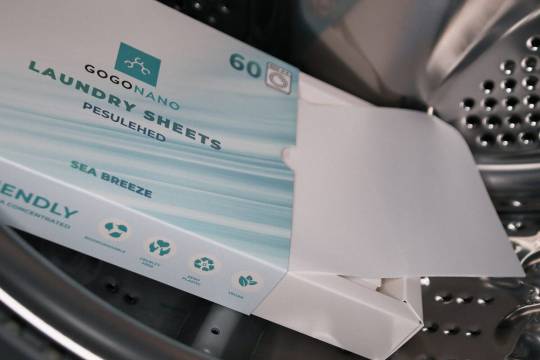
Travel-Friendly and Cost-Effective (Because Who Doesn’t Love Saving Money?)
Compact and lightweight, these laundry sheets are perfect for travelers, campers, or anyone with limited storage space. They’re the ideal travel laundry detergent option, eliminating the need for bulky liquids or messy powders. And while the upfront cost might seem higher, think long-term: pre-measured sheets prevent overusing detergent, leading to long-term cost savings. The highly concentrated formula translates to fewer sheets needed per load, making them more affordable than most capsules or eco-friendly gels in the long run. So, save your money for that epic vacation — GoGoNano has your laundry covered!
Choosing the Right Laundry Sheets
With so many options out there, choosing the right laundry sheets can feel overwhelming. But don’t worry, laundry guru, we’ve got your back! Consider these factors:
Ingredients: Our natural laundry detergent sheets are formulated with plant-based ingredients that are readily biodegradable, minimizing their environmental impact. Free from harsh chemicals, they’re ideal for sensitive skin and gentle on your precious delicates.
Scent: Our current offering features a light and refreshing Sea Breeze scent. Future additions will cater to individual preferences, including fragrance-free options.
Fabric Compatibility: GoGoNano laundry strips are suitable for all fabric types, including wool and sportswear. However, future lines may cater to specific delicates with unique needs.
Water Temperature: Our sheets work effectively in both hot and cold water cycles (as low as 15°C).
Embrace the Future of Laundry

Finding the Perfect Laundry Solution
Whether you’re drawn to the versatility of traditional detergents or the convenience and eco-friendliness of laundry sheets, the most important factor is choosing a solution that aligns with your laundry needs and preferences.
Remember, there’s no single “best” answer — it’s all about finding what works best for you!
#sustainability#laundry sheets#laundry strips#laundry detergent sheet#laundry detergent#laundry day#ecofriendly#nanotechnology#green chemistry#natural cleaning product#laundry#washing#sheets#hygiene
1 note
·
View note
Text
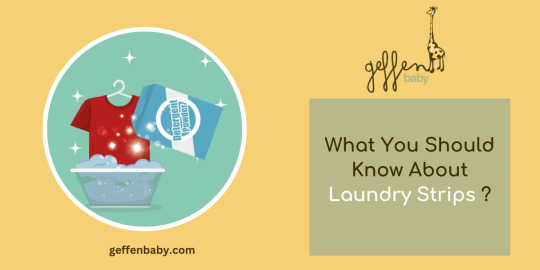
Geffen Baby cloth diapers - Laundry strips
0 notes
Text

For anyone learning to wear skirts, recommend compression shorts underneath, for more reasons than one.
#comic strip#tiff and eve#webcomic#trans comic#transgender#art#my art#original art#illustration#trans girl#skirt#just skirt things#trans character#Eve's shorts#laundry day#newspaper comics
459 notes
·
View notes
Text
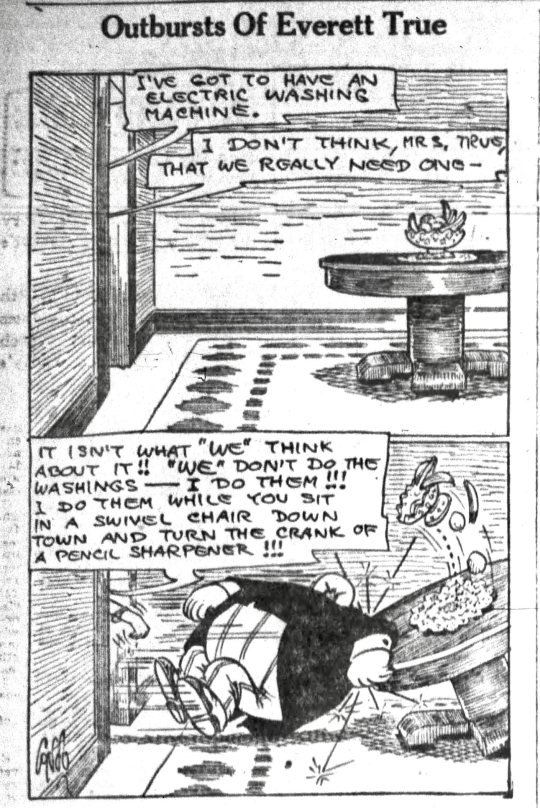
The Outbursts Of Everett True (Mar07th1921)
Art by AD Condo
#Comics#Comic Strips#The Outbursts Of Everett True#Outbursts Of Everett True#Everett True#AD Condo#Vintage#Art#Humor#Humor Comics#1921#1920s#20s#Washing Machine#Laundry
57 notes
·
View notes
Text
Laundry stripping may be popular in certain circles, but it's important to understand the science behind the deep-cleaning practice before you decide to give it a try. Ultimately, stripping some fabrics (like silk and wool) can actually do more damage than good—and utilizing this method too frequently can prematurely age your garments. […] [Cleancult CEO Ryan] Lupberger advises against the practice altogether, especially if you were considering Borax. "It's one of the products people often use to strip laundry, but is also an irritant. It can lead to skin irritation or a rash and respiratory side effects," he says, noting that there are concerns for exposure to humans, as well as pets. […] The shock of laundry stripping is the water—the process results in a dark, seemingly disgusting pool of filth. In reality, this discoloration is largely caused by hot water leeching the dye in your clothes, causing them to run. Stripping can, however, help remove dirt, lingering body oils, detergent residue, and hard water minerals; together these soils do contribute in part to that brown-gray water, says Lupberger. According to Tide scientist Jennifer Ahoni, "Our research and laundry expertise suggests that there are more effective methods to remove build-up on fabrics." Per Tide's findings, continues Ahoni, the stripping process can actually cause issues with many textiles. "The mechanism by which washing soda precipitates out water hardness can actually form new soap scum residues on fabrics," she says. "Additionally, we have learned that low wash pH is an effective method for soap scum removal, and washing soda raises wash pH—which is the opposite direction." Not to mention the fact that washing soda can also deactivate some detergent components, preventing your wash from getting extra clean in the first place.
#so like. in addition to pernicious rhetoric it's just like. a dubious practice!!#(like. hello. is this not the skin sensitivities website.)#but this idea that Traditional Wisdom has been kept from us by Capitalism is REALLY popular#but it's like. hello. actually laundry SUCKED and scientists have worked really hard to improve it!!#obviously the profit motive is real and you shouldn't ignore it but like.#just bc the narrative of Progress is propaganda doesn't mean substituting a narrative of Capitalist Degeneration is an improvement!!#honestly just in general i'd argue that 180° turnarounds are not in fact Good Nuance but reactionary bullshit to be wary of#but anyway. have some specifics on#laundry#and#laundry stripping#as long as i'm subtweeting.
291 notes
·
View notes
Text
Here’s the thing. Self-Care isn’t always aesthetic, it isn’t always pretty. Sometimes, Self-Care is gritting your teeth and taking a shower even when your entire body is screaming no. Sometimes, you fail at even that and then it’s laying on the floor and washing yourself with a wet rag. It’s boiling an egg and making microwave mac n’ cheese so you don’t eat a bag of chips for dinner for the fifth time this week. It’s listening to music on the floor in the laundry room waiting for the dryer to be done because you know you won’t remember otherwise. It’s dragging yourself outside even on your worst days for your stupid mental health walk, or failing that, sitting on the front stoop and listening to the wind. I’m not saying bath bombs and skin care and whatever else you’re being sold ISN’T self-care, because maybe you’re the kind of person who needs that ritual to stay in the moment. What I am saying is that Self-Care has been commodified to the point where the phrase has become meaningless. Life often isn’t aesthetic or pretty or demure or whatever we’re saying these days. Reclaim the process of survival. Humanize it. There may be days where it’s our only hope.
#i’m making this post because i’m going to have to strip my life down to the bare essentials these next few weeks to make it#so i’m preparing by identifying what my basic needs are and figuring out how to cover them with minimal effort#the towel bath will definitely be utilized. naps in the laundry room. prepackaged lunches so i can work thru lunch.#it’s gonna be rough chat. two weeks. that’s all i have to survive. then they’ll cut my hours and i can be normal again
25 notes
·
View notes
Text
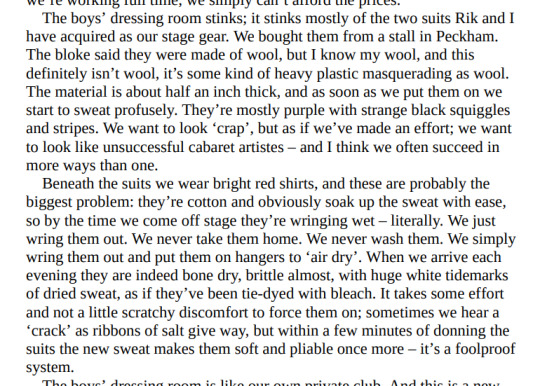
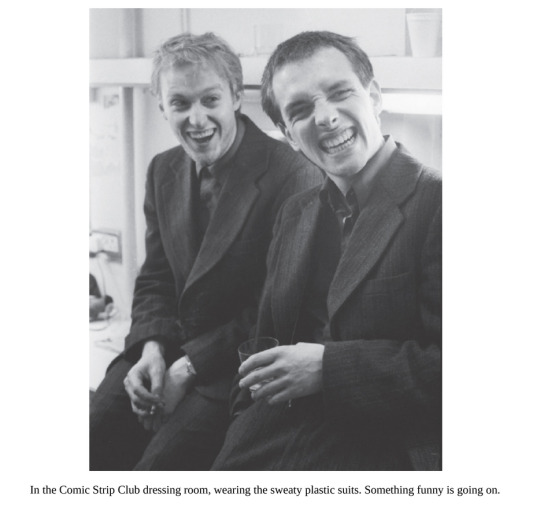
this is so funny and disgusting to me (from berserker!). this sounds exactly like something rick/vyv or richie/eddie would do
because i love biographies here are more anecdotes about this Phenomenon. it kills me that they all remembered and independently commented on THIS part of the comic strip when according to alexei no one he asked could even remember what the first opening night was like. that stench was bad 😭
alexei sayle, thatcher stole my trousers:
All the core performers had instinctively begun wearing suits though throughout the following year none of us had thought to get these suits cleaned ever, so pretty soon they were all stiff and stinking with sweat. Rik and Ade had bought their outfits at a discount place called the Houndsditch Warehouse. They had been made in Communist Romania out of what looked like cheap purple carpet and cost £10 each which wasn’t a lot of money even back then.
jennifer saunders, bonkers:
All the boys are squashed into the other [dressing room], next door. We do go in and hang with them sometimes, but, to be honest, it stinks. They are always dripping with sweat when they come offstage, and the only facility to wash in is a sink which is always filled with bottles of beer. Their stage suits are hung up, wet with sweat, and left to dry out before being worn the next night. The funk of BO and fags is heavy in the air, spiced up with a whiff of old doner kebab, chips from the night before and the odd fart. It hums.
dawn french, dear fatty:
Our dressing room wasn't so bad, or if it was, it was masked by a heady top note of hairspray, perfume and deodorant. The boys’ room was a rank, acrid, humming place. They used to sweat a lot with nerves, then sweat more onstage, then take off their stage outfits, hang them up on the floor and never wash them. I think they thought it was unlucky to do so, or something. They might have been able to wash their armpits in the sink in their dressing room, if the sink hadn't been full of ice and lager cans.
#1980 rik and ade you are not beating the smelly student allegations#also pretty sure theyre wearing these suits+the red cotton shirts in The Comic Strip movie#bro i know they were broke but i know they could afford laundry detergent like FJKLAEFL babygirl what is wrong with you.#french and saunders were paid less but they did not stink like yall#and seeing how much rik sweats on stage?? this is so funny. ade got to know his future wife in these conditions. anything is possible#ade edmondson#rik mayall#britcom#also ade is a fantastic writer#they all are tbh
40 notes
·
View notes
Text
Life hack: if you desperately want to wash your bedsheets but you don’t have time/energy/willpower to make yourself strip the bed and do the whole process, just throw your pillowcases in with your next load of laundry. You will feel at least 60% better if your head is resting against nice soft clean smelling pillows :)
#my thoughts#I am 100% sure people already do this but it never occurred to me to wash pillowcases with regular laundry and not wash them with my sheets#I hate the whole process of stripping the bed and washing my sheets and putting them back on#probably my least favorite chore#but I love freshly cleaned sheets#so this will help me feel better :)
11 notes
·
View notes
Text
Shit morning. Very very shitty morning. The rest of the day better not suck or I swear to fuck I'm gonna riot
[I highly recommend not reading the tags, but I needed to vent]
#CW blood#cw periods#don't read further if you don't wanna read about me describing my bloody morning#so I knew I had my period right? it's day 3#and I went to bed last night without pants bc they weren't fitting right bc of the bloating#thank you body#as per usual I tossed and turned all night and when I woke up I felt it#I felt the mess#on my thighs and on the bed and I did not wanna get up bc that meant dealing with it#and I did not wanna deal with it (I knew I would have to but I didn't wanna)#it was SO MUCB WORSE than I thought#the bed was a mess and the blood was halfway down my thighs and ain't my stomach and the pad was so thoroughly soaked thru#it couldn't hold anything more even if I wanted it to#I ran to the bathroom and stripped and cleaned myself as best as I could#and then I had to soak my underwear and wash my blankets (cold water folx not hot)#(cold water prevents stains in this specific instance)#anyways my morning was shit and now I have extra laundry to try and fit in before work and oh yeah I still have work today too#it's file tho so just taking down and putting up tags#and I'm off tomorrow so I can stay in bed most of the day and not have to deal with bullshit#I need to yeet the uterus... I can't keep doing this... I shouldn't wake up to messes this bad multiple times a year#I can't say monthly bc I don't always bleed monthly#and my husband and I have talked and there's some decisions we have to make#he said he'll support me and he understands that this isn't normal or okay#and he told me he only wanted to do pregnancy bc I wanted to do pregnancy and idk anymore y'all. I don't know...#is keeping my uterus for another potentially five years worth it? I know the answer is no#god I fucking hate this can someone please just rip it out for me and save me the decision making? pretty please?#personal
4 notes
·
View notes
Text
I have so much to do. I need to log off my phone. I am stressing. I am being an adult. goodbye.
#most frogus#im gonna slam my head into the wall until blood#okay see yall in however many hours it takes to strip paint from an old dresser#and deep clean the carpet#and fold laundry#and trim the fucking lemon tree before it gets too dark#im losing my mind#IVE BEEN CLEAMING SINCE 5AM FHIS MORNING FOR THE RECORD#AND IVE BEEN UP AND DOWN THE BLOCK TO THE STORE LIKE FOUR TIMES#I WANTTO LAY DOWN AND ROT#okau im fine.
6 notes
·
View notes
Text
Laundry Sheets Versus Traditional Detergents: Assessing the Superior Cleaning Solution
In the quest for clean clothes, consumers are faced with a choice: traditional laundry detergents or the newer, eco-friendly laundry detergent sheets. This guide delves into the world of laundry care, comparing these two options in terms of production, usage, and environmental impact, providing you with the knowledge to make an informed decision.
Understanding the Basics
Understanding the fundamental differences between traditional detergents and the newer laundry sheets is essential. Traditional detergents have long been the go-to choice, with their tried-and-tested formulas designed to combat a wide array of stains and odors. On the other hand, laundry sheets represent the cutting edge of laundry technology, offering an eco-friendly, convenient solution that caters to the needs of the environmentally conscious consumer without compromising on cleaning power.
What Are Traditional Laundry Detergents?
Traditional laundry detergents have been the cornerstone of laundry care for decades. These detergents come in various forms, including powders, liquids, and pods, and contain a mix of surfactants, enzymes, bleaches, and builders to tackle different stains and odors. They are designed to work in a range of water temperatures and are packaged in plastic jugs or cardboard boxes.
What Are Laundry Sheets?
Laundry detergent sheets are an innovative addition to the laundry aisle. These thin, biodegradable sheets are infused with concentrated detergent and dissolve completely in water. They offer a pre-measured, mess-free alternative to traditional detergents and are typically hypoallergenic, free from harsh chemicals, and come in recyclable or compostable packaging.
Production and Manufacturing
Exploring the contrast in laundry detergent production, this section examines the resource-intensive traditional methods and the sustainable practices shaping the future of laundry care.
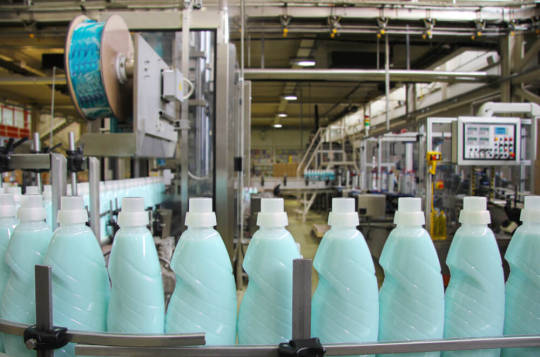
How Traditional Detergents Are Made?
The creation of traditional laundry detergents is an intricate process carried out in expansive industrial complexes. It starts with producing synthetic surfactants, the primary cleaning agents, often derived from petrochemicals through energy-intensive reactions. These surfactants are combined with a host of other chemicals like builders to soften water, enzymes to tackle proteins and starches, and additional agents such as fragrances and optical brighteners for aesthetic appeal. While these ingredients enhance the cleaning properties and sensory experience, they can be environmentally persistent and potentially harmful to aquatic ecosystems upon entering water bodies.
Considerable water is used in making liquid detergents, and the energy consumed in heating and transporting these products adds to their carbon footprint. The packaging of these detergents, predominantly plastic, presents further environmental challenges. Many of these plastics are not fully recyclable, leading to an accumulation of waste in landfills and oceans, where they can take centuries to break down, leaking pollutants and posing risks to wildlife. The environmental impact of these practices has led to a push for more sustainable laundry products that prioritize biodegradable ingredients, reduced packaging, and energy-efficient production.
The Creation of Laundry Sheets
Laundry sheets are developed through eco-friendly processes that significantly reduce the consumption of water and energy. Active ingredients are applied onto sheets made from biodegradable materials, allowing them to decompose naturally and lessen the environmental impact. The production of these sheets focuses on a minimalist approach, not only in the product design but also in the packaging, which utilizes materials that are recyclable or compostable, aligning with a commitment to sustainability.
Chemical Composition and Skin Sensitivity
This section delves into the chemical makeup of laundry detergents and their implications for skin sensitivity. We’ll uncover how the traditional detergent industry’s reliance on harsh chemicals contrasts with the emerging trend of laundry sheets that prioritize skin health and environmental sustainability. Additionally, we’ll highlight the innovative formulations of laundry sheets that are setting new standards for gentle, skin-friendly cleaning.
Chemicals in Traditional Detergents
Traditional detergents can contain a variety of chemicals that may cause skin irritation or allergic reactions in sensitive individuals. Phosphates, which are often used to soften water and improve cleaning efficiency, can lead to skin problems and have a detrimental effect on aquatic life when they enter waterways.
How Does Traditional Laundry Detergent Harm The Environment
Laundry detergent is far more than just a basic cleansing soap. It contains a huge number of harmful chemicals that have a serious impact on our environment. Some of the most concerning ones are:
Phosphates – linked to cardiovascular (heart) disease as well as osteoporosis. These toxins are particularly damaging to the marine environment when dispersed in wastewater from your wash.
Bleach – often used to brighten whites, its toxic fumes cause respiratory distress and on contact with skin and eyes it is able to cause caustic burns.
Formaldehyde – A chemical usually associated with the preservation of dead bodies. This toxic ingredient as classified by the EPA, is a class B1 probable carcinogen. This means it has been linked with an increased risk of cancer.
Ammonium Sulfate and Ammonium Quaternary Sanitizers – harsh cleansing agents that are corrosive and toxic. They can cause eye, skin and lung damage even with minimal exposure.
Dioxane (1,4 Dioxane/ Diethylene Dioxide/ Diethylene Ether/ Dioxan) is quite possibly one of the worst additives. Dioxane is also a carcinogen and has been known to pose a combustion risk. Exposure to this toxin can damage your kidneys, lungs, central nervous system, eyes, skin and respiratory function.
The Hypoallergenic Nature of Laundry Sheets
Laundry sheets are intentionally formulated with a minimalistic chemical composition, often utilizing natural ingredients and plant-based surfactants. This streamlined approach not only reduces potential skin irritants but also caters to those with sensitive skin or allergies. Unlike traditional detergents, which may contain a plethora of synthetic chemicals, laundry sheets opt for milder cleaning agents that provide effective cleaning without the risk of allergic reactions. Their hypoallergenic properties make them a preferred choice for consumers seeking a skin-friendly laundry solution.
Moreover, the gentleness of laundry sheets extends to the care of fabrics. They are designed to clean without compromising the textile’s structure, thereby preserving the longevity of clothing. The environmental benefits are equally significant; the biodegradable nature of these sheets means they break down naturally without leaving harmful residues in water or soil, aligning with eco-conscious practices and reducing the ecological impact of laundry activities.

Usage and Efficacy
Laundry sheets are redefining fabric care with their innovative approach to efficacy and usage. These eco-friendly alternatives to traditional detergents deliver effective cleaning power in a pre-measured, dissolvable sheet, minimizing waste and preventing the common issue of detergent residue. While traditional detergents offer a broad spectrum of enzymes for various stains, laundry sheets maintain a competitive edge with their simplicity and suitability for both hot and cold water cycles, catering to the needs of the environmentally and health-conscious consumer.
Effectiveness of Traditional Detergents
Traditional detergents have been optimized for performance across a spectrum of conditions. They are formulated to work in various water temperatures, from cold to hot, and are effective for different load sizes. The presence of specific enzymes and other chemicals in these detergents means they can tackle a wide range of stains, from protein-based to grease and oil.
However, the effectiveness of traditional detergents can be influenced by the hardness of the water and the accuracy of the dosage. Overuse is common, leading not only to wasted detergent but also to potential residue on clothes and in machines.
Performance of Laundry Sheets
Laundry sheets are designed for convenience and simplicity. They dissolve easily in both hot and cold water and are pre-measured to avoid the issue of overuse. While they may not contain the same range of targeted enzymes as traditional detergents, many users find them effective for general laundry needs and appreciate the added benefit of fabric care due to their gentle formulation.
Comparative studies and consumer feedback suggest that laundry sheets perform well in everyday laundry scenarios, though heavily soiled items may require additional treatment or a double dose of the product.
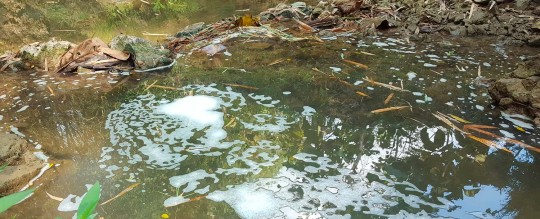
Environmental Impact
The Ecological Footprint of Traditional Detergents
The environmental impact of conventional laundry detergents is increasingly recognized. These detergents often fail to fully biodegrade, releasing harmful substances into our water systems, including rivers and oceans. Toxic elements such as cadmium and arsenic, which are sometimes present in detergents, can pose significant risks to aquatic ecosystems. Research indicates that phosphates, frequently used in these cleaning products, accumulate in bodies of water, causing eutrophication. This process results in excessive algal growth, which depletes oxygen in the water and can suffocate aquatic life, including fish and plants.
The Sustainable Advantage of Laundry Sheets
Laundry sheets are at the forefront of sustainable fabric care, distinguished by their environmentally conscious components and manufacturing process:
Plant-Based Surfactants: Unlike traditional detergents that rely on petrochemicals, laundry sheets use surfactants derived from renewable plant sources, which offer effective cleaning while being more gentle on the environment.
Biodegradable Fibers: The structural material of the sheets is composed of biodegradable fibers that break down naturally, leaving no harmful residues in the ecosystem.
Natural Enzymes: To tackle various stains, laundry sheets incorporate enzymes sourced from natural organisms, ensuring biocompatibility and reducing the risk of aquatic toxicity.
Minimalist Packaging: Emphasizing sustainability, the packaging of laundry sheets is designed to be either fully recyclable or compostable, contributing to waste reduction goals.
Carbon Footprint Reduction: The compact and lightweight format of laundry sheets significantly lowers the carbon emissions associated with their transportation and distribution.
Water Conservation: By providing a pre-measured amount of detergent, laundry sheets eliminate the common problem of overuse, saving water and reducing the frequency of purchasing new detergent.
Cost Analysis
The Economic Costs of Traditional Detergents
When considering the economic implications of traditional detergents, the initial purchase price represents just a fraction of the actual cost. Consumers often use more detergent than necessary, influenced by the misconception that more soap equals cleaner clothes. This habit of overuse not only increases household expenses over time but also accelerates the depletion of detergent supplies, necessitating more frequent purchases. Furthermore, the environmental degradation caused by these detergents, including water pollution and the energy-intensive production process, incurs hidden costs that are absorbed by communities and ecosystems.
These hidden environmental costs have far-reaching economic consequences. The pollution of waterways necessitates additional treatment for safe use, which can strain municipal budgets and lead to increased utility bills for residents. Waste management becomes more complex and costly as well, with plastic packaging from detergents contributing to the growing volume of refuse that requires processing. Over time, these environmental and societal costs can lead to higher taxes and living expenses, illustrating that the true cost of traditional detergents extends well beyond their shelf price.
Cost-Effectiveness of Laundry Sheets
Laundry sheets offer a more economical alternative to traditional detergents over time. Their pre-measured design eliminates the guesswork and prevents the common issue of detergent overuse, ensuring optimal use of every sheet. This not only conserves the product but also translates into direct savings for consumers, who will purchase laundry detergent less frequently. Additionally, the compact and lightweight nature of laundry sheets reduces manufacturing and shipping costs. These savings can be passed on to the consumer, making laundry sheets a cost-effective choice.
The environmental advantages of laundry sheets also contribute to their cost-effectiveness. By minimizing the use of plastics in packaging and reducing the reliance on harsh chemicals, laundry sheets lessen the burden on waste management systems and decrease the need for environmental remediation efforts. These reductions have a ripple effect, potentially lowering community expenses related to waste processing and health care costs linked to chemical exposure. Thus, the economic benefits of laundry sheets extend beyond immediate savings, contributing to broader financial advantages for both individuals and society.
Consumer Convenience and Accessibility
Accessibility of Traditional Detergents
Traditional detergents enjoy a stronghold in the marketplace, largely due to their pervasive presence across various retail environments. From expansive supermarkets to modest corner shops, these detergents are readily available, making them a convenient choice for the everyday shopper. The extensive distribution network of these products ensures that they are within easy reach for most consumers, contributing to their continued popularity.
This market saturation is underpinned by years of established brand presence and consumer loyalty, which have been cultivated through persistent marketing efforts and ongoing product innovation. Such brand familiarity reassures consumers, often making traditional detergents a default purchase. The result is a self-reinforcing cycle of accessibility and demand, maintaining the status quo of traditional detergents as a household staple.
The Rising Popularity of Laundry Sheets
Laundry sheets are a relatively recent innovation in the home care market, but they are quickly carving out a significant niche. Their appeal lies in the combination of user-friendly convenience and a strong eco-conscious ethos, which aligns with the values of a growing segment of consumers. The shift towards environmentally responsible products has been a key driver in their burgeoning popularity.
Moreover, the advent of e-commerce has played a pivotal role in making laundry sheets more accessible to a wider audience. They are prominently featured on various online shopping sites, dedicated platforms for sustainable goods, and are increasingly making their way onto the shelves of traditional retail outlets. This expanding availability is a testament to the changing consumer preferences and the evolving landscape of the household cleaning market, where sustainability is becoming as important as efficacy.

Disposal and Recycling
Disposal Issues with Traditional Detergent Containers
The disposal of traditional detergent containers poses significant challenges. While many are technically recyclable, the reality is that a substantial portion ends up in landfills due to contamination or improper disposal. The impact of this plastic waste is far-reaching, contributing to the growing problem of environmental pollution and the depletion of resources required to produce new plastic containers.
Disposal of Laundry Sheets
In contrast, laundry sheets offer a more environmentally friendly end-of-life scenario. Their packaging is often designed to be compostable or recyclable, aligning with zero-waste principles. The sheets themselves, being biodegradable, leave no trace once they dissolve in water, which significantly reduces their environmental impact compared to traditional detergents.
The Future of Laundry Detergents
Innovations in Traditional Detergent Formulations
The landscape of the detergent industry is dynamic, with continuous advancements shaping the future of laundry care. Recognizing the growing environmental concerns, many detergent brands are actively seeking to minimize their ecological footprint. This pursuit of sustainability has led to the creation of highly concentrated detergent formulas, which deliver the same cleaning power in smaller doses, thereby reducing the need for excessive packaging.
Alongside concentration, there’s a shift towards incorporating plant-derived ingredients, which are gentler on the environment and often renewable. These natural components are increasingly replacing their synthetic counterparts, contributing to a cleaner production process and a safer product for both consumers and the planet. Additionally, the industry is experimenting with refillable detergent systems, aiming to cut down on single-use plastic containers and encourage a reuse mindset among consumers, further aligning product design with environmental responsibility.
The Evolution of Laundry Sheets
Laundry sheets stand at the forefront of innovation within the home care sector, with their trajectory set towards expansion and refinement. Technological advancements are paving the way for these products to boast enhanced cleaning efficacy, catering to a variety of fabric types and stains with greater precision. As the industry evolves, consumers can anticipate a wider selection of fragrances and specialized features tailored to specific laundering needs, from delicate care to robust stain removal.
The environmental aspect of laundry sheets is also expected to improve, with ongoing research into even more sustainable materials and manufacturing processes. The commitment to eco-friendliness is a strong selling point that resonates with the modern consumer, and as awareness of environmental issues grows, so does the demand for products that align with a sustainable lifestyle. This growing consumer consciousness is likely to drive further innovations in laundry sheets, ensuring they not only clean clothes effectively but also contribute positively to the health of our planet.
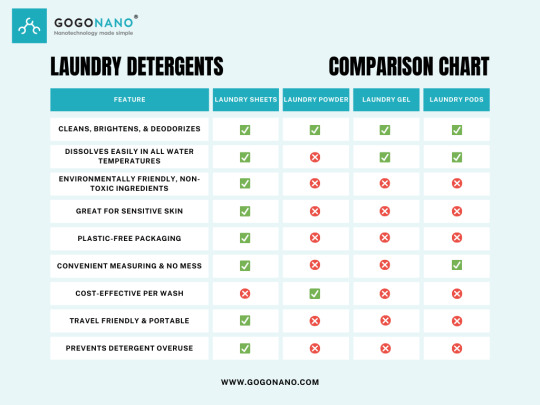
Final Thoughts
Throughout this guide, we have delved into the complex world of laundry care, examining the strengths and weaknesses of both traditional detergents and the emerging laundry detergent sheets. We’ve seen how the tide is turning in favor of sustainability in our cleaning habits, a change driven by increased global awareness and responsibility. As the public becomes more attuned to the environmental ramifications of their choices, laundry sheets emerge as a beacon of innovation, offering a path to a more sustainable and environmentally considerate future in home care. Embrace the change and join the movement towards a cleaner planet—make the switch to GoGoNano laundry detergent sheets today and be part of the solution for a greener tomorrow.
#nanotechnology#ecofriendly#sustainability#zerowaste#laundry sheets#laundry detergent sheets#laundry strips#plastic free laundry detergent#cleaning guide#gogonano
0 notes
Text
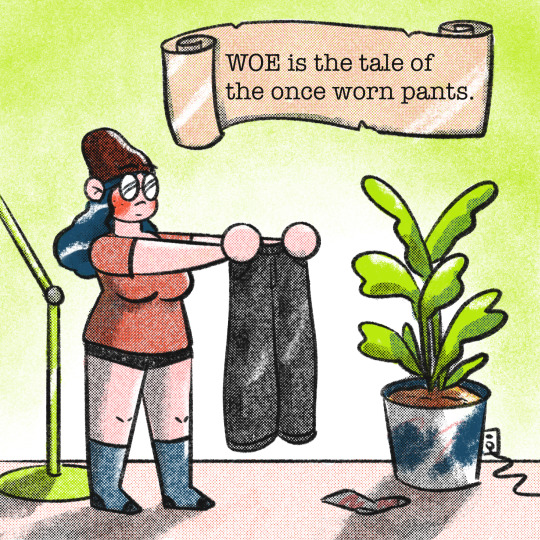
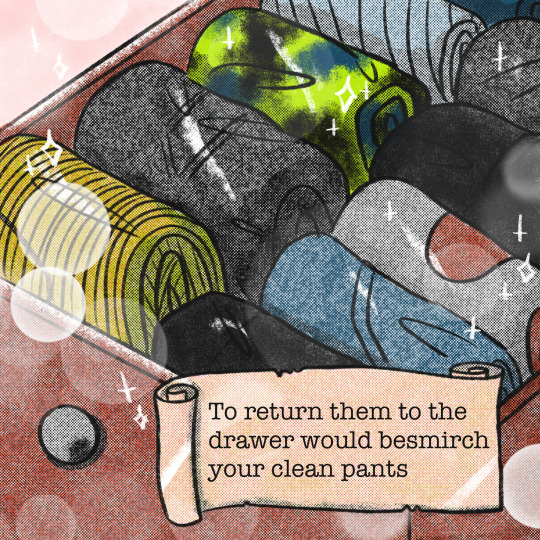
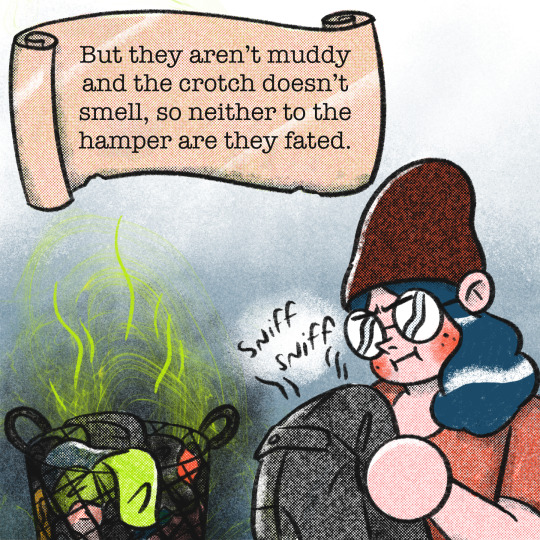
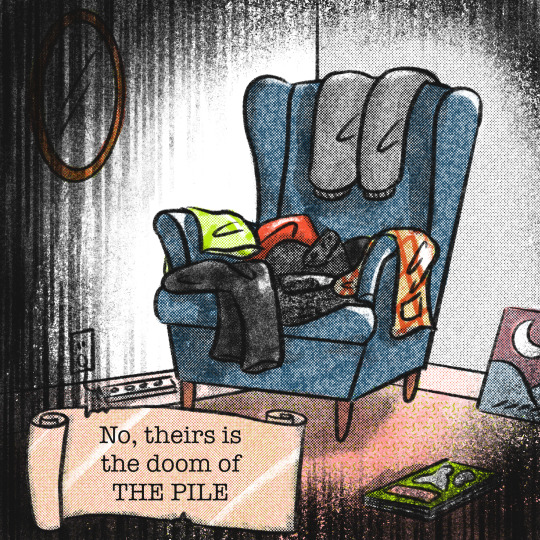
#stuff i drew#comics#my art#pants#besmirched#clothes#clothes chair#comic strip#comics on tumblr#artists on tumblr#dirty laundry#still vreni
89 notes
·
View notes
Text
I need to clean my room. If you see me blogging later throw vegetables at me please
#I’m going to eat dinner and I’m going to strip the sheets off my bed#I’m going to put my laundry away I’m gonna clean my floor#please for the love of god I can’t keep living like this @ myself#sun in an empty room
9 notes
·
View notes
Text

NOT A DRILL NOT A DRILL
youtube
#maybe its aveline#i bet he smells like the fucking rain and mud and im sooo mad i cant just like#be there#cause idk if yall realize but like...i would take his boots off for him when he got home and help strip out of his clothess#run him a hot bath and wash his hair like...do his laundry for him and also feed him so like#🥵🥵🥵🥵🥵🥵🥵🥵🥵🥵🥵🥵🥵#also HELP IM A DORK#Youtube
5 notes
·
View notes
Text
Fitted sheets are the Devil's instrument
4 notes
·
View notes
Text
Took the day off from work, day drank in the outfield of a ballpark, got to see all of totality, hung out with my friends, and did I mention I didn't have to work?? Perfect start to my birthday week 🤗
#personal#spent way too much on ballpark chicken strips but they were good lol#now I'm at home with the kitties doing laundry and watching TV! life is good
8 notes
·
View notes